No matter how busy life gets, having a hobby is something we all need. It’s not just a way to pass the time, hobbies are something that make us happy, and help us recharge, grow, and express ourselves.
So, can journaling be a hobby? Absolutely! Journaling is one of the easiest hobbies to start. All you need is a notebook, a pen, and a little time.
It might not seem like a “typical” hobby. After all, when we think of hobbies, we often picture activities like painting, gardening, or playing an instrument. But journaling can be equally engaging, personal, and rewarding as any of those.
When my husband and I first started journaling, it wasn’t with the idea of making it a hobby. For me, it was something I’d tried on and off for years.
Sometimes it was part of a New Year’s resolution, other times, it was inspired by those perfectly curated Instagram posts.
But I’ll admit, it never really stuck. I’d do it for a week or two and then give up. Recently, though, we decided to try journaling again. This time with a different mindset, we decided not to think of it as a chore or a goal, but as something to enjoy.
Now after doing it consistently for a couple of months, it has not only become a habit but also one of the most therapeutic hobbies I’ve ever had.
We live in a world where everything moves fast. New technology, busier schedules, endless notifications, it’s a lot to handle. The demands of work and life have become so overwhelming that hobbies are no longer just “nice to have”, they’re essential.
All of us need a toolkit to survive and keep ourselves sane in this fast-paced world, and journaling is a big part of that toolkit that will not only make us happy but also improve our mental and emotional well-being.

For me, journaling has become one of those tools that is not just about writing down my thoughts, but about finding peace and giving myself space to grow.
In this blog, we’re going to explore what makes journaling such a great hobby.
We’ll answer some common questions like why journaling counts as a hobby, how it compares to other hobbies, and why it’s worth your time.
By the end, hopefully, you’ll understand that journaling is so much more than just writing about your day and thoughts.
It’s a tool for becoming a better version of yourself, manifesting your dream life, practicing mindfulness, gratitude, and self-care, and documenting your life as you grow older, all while being a hobby that you enjoy doing and look forward to every day.
And the best part is that it’s a hobby that fits right into your life, no matter how busy things get. Let’s get started!
Table of Contents
What Is Considered a Hobby, and Does Journaling Fit Into It?
A hobby is anything you do to have fun, relax, or get a sense of fulfillment. It’s not about being perfect or achieving something big, but about enjoying the process.
Think of hobbies as something that lets you explore your interests, take a break from everyday responsibilities, and do something just for yourself.
Whether it’s gardening, baking, playing an instrument, or even collecting stamps, hobbies come in all shapes and sizes. The important thing is that they should make you happy and give you a sense of satisfaction.
Now, does journaling fit into this? Absolutely, it does. Think about it for a moment, journaling is something you can do entirely for yourself.
You don’t need an audience or any specific skills. It’s a space where you can express your thoughts, process your emotions, or simply write down memories from your day.
Like any other hobby, it’s something you can look forward to and spend time on because it feels good, not because you have to.
What’s great about journaling is how flexible it is. You can make it as creative or simple as you want.
Some people use their journals for art, like doodling or writing poetry, while others stick to straightforward entries about their day. You don’t have to follow any rules or compare yourself to others. Your journal is yours.
So, if you’ve ever wondered if journaling counts as a hobby, the answer is a definite yes. It’s a mindful and meaningful activity that not only helps you unwind but also lets you explore your thoughts and ideas.
Just like any hobby, it’s about doing something you enjoy, in your own time, and in your own way.
Why Do People Choose Journaling as a Hobby?
Journaling is one of those hobbies that feels deeply personal yet incredibly versatile. People choose it for so many reasons, and honestly, that’s what makes it so special as it can be whatever you need it to be.
For me, journaling became a part of my life after I was diagnosed with fibromyalgia in 2021, during the pandemic.
If you’ve read our About Us page, you might already know this, but living with a condition like fibromyalgia where your body hurts all the time can be mentally and emotionally exhausting.
After trying many things to cope, one common suggestion from my doctor and therapist was journaling.
They told me it’s the next best thing to therapy because it can help me process emotions, manage stress, and track patterns in my health and mood. At first, I wasn’t sure if I’d stick with it, but I decided to give it a try.
At that time, I tried it briefly but honestly, it didn’t stick. Life got busy, and journaling felt like one more thing on my to-do list. Fast forward to earlier this year and everything changed.
While researching and writing my blogs, I realized that journaling is a very powerful thing and something we all need. I felt like I owe it to myself to give it a try once again.
I’ll also admit that I came across a few posts and reels that made journaling look so inviting and creative, like something I’d actually enjoy rather than a task I had to complete.
Now writing in my journal has become my safe space, a place where I can vent my frustrations, reflect on what I was feeling, and even remind myself of the little wins in my day.
Over time, I realized how powerful journaling could be, not just for managing my condition but for finding a sense of calm amidst the chaos.
Moreover, it helps me plan my blogs and my days. It helps me organize my to-do lists and things I need to take care of.
I think that’s why people choose journaling because it’s adaptable, personal, and can meet you exactly where you are.
For me, it’s not just a hobby, it’s a form of self-care that I finally feel ready to embrace.
5 Simple Steps to Start Journaling as a Hobby
The next question you might have in your mind is, if journaling is such a great hobby, how do I get started with it?
Well, starting anything new might feel a little overwhelming or intimidating at first, especially if it is something as personal as journaling. But the truth is that journaling is not that complicated.
In fact, it’s one of those things where there’s no right or wrong way to do it. What matters is finding a method that works for you.
All you need is a little bit of guidance to get started, and soon enough, it’ll become a natural part of your routine. Let’s discuss some simple steps that will help you get started with your journaling practice.
Step 1: Find Out and Decide on Your Journaling Style
When you start something new, generally you start with a purpose or an end goal in mind. The same goes for journaling as well.
Before you pick up a pen, take a moment to think about why you want to journal and what you hope to get out of it. I understand that you want to start journaling as a hobby, and just like any other hobby, you’re doing it because of the happiness and fulfillment it can give you.
But understanding your intention behind doing it will make the process easier and more meaningful. Is it to clear your mind, reflect on your emotions, plan your days, or simply document your life?
Now, there are many different types of journaling to explore like gratitude journaling, bullet journaling, art journaling, or even travel journaling.
I’ve covered them in another blog where I talk about different journaling styles and their benefits so if you’re curious about them, I encourage you to give it a read after this.
Related Blog: What Are The Different Types of Journaling
However, if you’re a complete beginner, diving into all these options at once might feel overwhelming and leave you more confused than inspired.
In my opinion, the best way to get started is to keep things simple, and one technique I absolutely recommend is Morning Pages.
This method was introduced by Julia Cameron in her book The Artist’s Way, and it’s perfect for beginners because there are no rules to overthink.
All you need to do is write three pages in your journal about whatever comes to your mind. There’s no need to worry about grammar, spelling, or forming perfect sentences.
The idea is to let your thoughts flow freely onto the paper without filtering or judging them. You might write about how you’re feeling, what you dreamt about, your plans for the day, or even random thoughts that pop into your head.
Morning Pages are a great way to clear your mind first thing in the morning, almost like a brain dump. Plus, because you don’t need to follow any structure, it’s a low-pressure way to start building the journaling habit.
So, if you’re unsure where to begin, give Morning Pages a try.
2. Start Small and Keep It Simple
When I first tried journaling, I made the classic mistake of trying to do everything at once.
I started because my doctor and therapist recommended it as a way to manage my health and well-being, but instead of keeping it simple, I crammed too much into it.
I tried to write my goals, my to-do lists, my weekly and monthly plans, and some details about my health and well-being, all in one go.
Since I was a complete beginner, it took up so much time that journaling quickly felt like a chore rather than something I could enjoy.
Another thing I did wrong was trying to make my journal look perfect and Instagram-worthy. I’d seen all these beautifully curated journals with fancy handwriting, colorful doodles, and aesthetic spreads, and I felt like mine had to look the same.
But the pressure to make it “look good” completely took away the real purpose of why I started journaling in the first place, to feel better and process my thoughts.
So, my advice and step two is to start small and keep it simple. Don’t overwhelm yourself. You don’t need to write pages of content or make your journal look pretty. It doesn’t matter how it looks. What matters is how it makes you feel.
If you’re not sure where to start, write a few lines about one thing that happened today. It could be a thought you had, a small win, an observation, or even how you’re feeling in the moment.
If you want something structured, try the morning pages method I mentioned earlier. Or, if evenings work better for you, write down a single thought before going to bed.
The key is to start with something manageable and focus on consistency rather than perfection. Once you get into the flow, journaling will naturally become a part of your routine.
3. Create a Journaling Routine
Earlier what felt like a chore now feels like an experience I genuinely enjoy, something I look forward to every single morning. It’s surprising even to me how eager I am to open my journal and start writing.
And I believe the reason this habit has stuck and become so enjoyable is because of the simple and comforting routine I’ve built around it.
For me, journaling is now a part of my morning ritual. Since regular tea or coffee doesn’t suit my body, I start my day by making a warm cup of herbal tea.
Then I pick a comfortable spot. If it’s chilly, I cozy up in my bed and if the weather is nice, I settle on the couch. As I sip my tea, I write in my journal.
This small ritual has turned journaling into a calming and mindful practice rather than just another item on my to-do list.
And that’s the beauty of creating a routine. It transforms a habit into something you naturally look forward to. Journaling becomes less about the “task” itself and more about the comforting experience surrounding it.
If you’re starting out, I recommend finding little enjoyable activities to pair with your journaling practice. Maybe it’s sipping a cup of coffee, lighting a candle, playing soft background music, or sitting in your favorite corner of the house.
If you combine journaling with something you already love, you create a ritual that feels enjoyable and peaceful.
Building a routine like this not only makes journaling enjoyable but also makes the habit stick. Over time, it becomes a natural part of your day, one you can’t imagine skipping.
4. Let Go of the Rules and Have Fun
As I mentioned earlier, one of the mistakes I made when I started journaling was trying too hard to make every page look perfect, almost as if it had to be Instagram-worthy.
I thought it needed to look beautiful and polished, but in reality, that just took away the very meaning and purpose of journaling. I wasn’t doing it for myself anymore, I was doing it for validation.
What I’ve learned after all these mistakes is that you have to let go of the rules. Journaling doesn’t have to follow a set format, and it definitely doesn’t need to look perfect.
Yes, if decorating your journal or making it look aesthetic feels like a creative outlet and makes you happy, then go ahead and do it.
Add colors, stickers, or doodles. Do whatever makes you happy. After all, journaling is a hobby that’s supposed to feel good and personal to you.
But don’t pressure yourself to make it picture-perfect just because you think it “should” look a certain way. It doesn’t have to be something you can post on Instagram.
Remember, the most important thing about journaling is that it serves you. It’s about expressing your thoughts, feelings, and experiences, not creating content for others.
Give yourself permission to write messily, misspell words, or even scribble thoughts that don’t make sense. Let it be raw, unfiltered, and uniquely yours. If you want to vent, vent. If you want to write one line, that’s okay too.
Journaling should feel like freedom, not a task. When you let go of expectations and perfection, you’ll find yourself enjoying it more and, most importantly, sticking with it.
Have fun with the process, and let your journal reflect the real, unedited you.
5. Stay Inspired and Be Consistent
The benefits of any habit, even if it’s a hobby, become noticeable only when you stick with it over a period of time. The same goes for journaling.
Consistency doesn’t mean you need to spend hours writing every day; even 10 minutes can make a difference. The key is to do it regularly and make it a part of your routine.
Some days, you might feel unsure about what to write, and that’s completely normal. Journaling doesn’t have to flow perfectly all the time.
When this happens, you can use some journaling prompts that help you get the words flowing. Some prompts you can try:
- “What made me happy today?”
- “What’s one thing I’m looking forward to?”
- “What are my short-term goals?”
You don’t need to write pages, just a few thoughts or lines are enough to keep the habit alive.
Another way to stay inspired is by exploring different journaling themes. For example, some days you might want to focus on gratitude, while on others, you might simply vent your frustrations or track progress toward a goal.
Having variety in what you write can make journaling feel fresh and engaging rather than repetitive.
Lastly, be kind to yourself. You don’t have to be perfect or write every single day. What matters is that you keep coming back to it as often as you can.
Over time, those 10 minutes a day will add up, and you’ll start to notice the benefits that journaling will bring into your life.
What Types of Journaling Can I Try for Fun?
Journaling is not a one-size-fits-all activity and that’s what makes it so enjoyable, you can tailor it to fit your personality, mood, and goals.
If you want to do journaling just as a hobby, there are so many fun and creative styles you can try to keep things interesting.
- Morning Pages: As we discussed initially, this is one of the simplest and fun ways to get started with your journaling practice.
- Gratitude Journaling: Write down a few things you’re grateful for each day. This style will help you shift your mindset towards the positive things in your life, rather than the things that are missing or that are troubling you.
- Bullet Journaling: This method combines creativity and organization. You can create to-do lists, plan your week, track habits, and even add doodles or colorful spreads to make it visually appealing.
- Reflective Journaling: Use it as a tool to reflect on your day, thoughts, or emotions. You can write about challenges, lessons learned, or moments that stood out.
- Art Journaling: If you enjoy drawing, painting, or collaging, this is a creative way to express yourself. Combine words with art to make your journal look good and inviting.
- Prompt-Based Journaling: If you need guidance, try journaling prompts like “What made me smile today?” or “What’s something I want to improve about myself?”
The beauty of journaling is in its flexibility. You can mix and match styles or switch things up depending on what feels right. Have fun exploring and find the style that inspires you the most!
Is Journaling a Good Habit?
Journaling is honestly one of the best things I’ve done for myself, especially in today’s fast-paced and chaotic world.
It’s been a blessing for me because it has helped me unload the thoughts and emotions that trouble me the most.
Stress is a big trigger for fibromyalgia and it can make the pain so much worse. Writing about my thoughts and emotions helps me release those worries and put my thoughts somewhere other than my mind.
It’s like letting go of a weight I didn’t even realize I was carrying.
But now after doing it for a few months, journaling isn’t just about venting for me. It also helps me stay organized.
I use it to plan my 9-5 job, my blogs, my Pinterest strategy, etc. It’s my little tool for managing life.
Seeing everything written down makes things feel a lot less overwhelming and on days when I feel a little scattered, journaling helps me get back on track.
That said, it’s not always sunshine and roses. While journaling has been amazing for me, I should also tell you that it’s not perfect.
Sometimes, if you’re not careful, writing can lead you to overthink things. For example, dwelling too much on problems or going in circles about the same issue can leave you feeling stuck instead of lighter.
So, is journaling a good habit? Absolutely! But only if you do it with the right mindset. Use it to clear your thoughts, reflect, or plan, but don’t let it become a space where you spiral into overthinking.
Like any habit, it’s about balance and figuring out what works best for you.
Which Type of Journal Should I Use for Journaling as a Hobby?
If you’re just starting out with journaling, my advice is to keep it simple. Don’t overthink it. Any blank notebook or journal will do, especially if you’re trying something like morning pages.
Just grab what you have or order something basic online. The goal at the beginning is to get comfortable with the habit and not to stress about finding the “perfect” journal.
Once you get comfortable with this habit, then you can go for other journals that have prompts and sections for different purposes. Again, the type of journal you choose will depend on your intention behind doing it.
There are journals with prompts, gratitude trackers, and planners designed for specific purposes, but choosing the right one depends entirely on what you want to get out of it.
When I first started, I can’t tell you how much money I wasted to find the ideal journal. I bought a bunch of pretty ones with trendy covers, things like “Girl Boss” or “Lady Something”.
I even ordered a few professional-looking dotted notebooks. Sadly, my journaling habit didn’t stick at that time and those journals barely have a few pages filled. Now I mostly use them for brainstorming or office work.
My husband gifted me an iPad last year on my birthday, and so while browsing some iPad-related videos on YouTube, I came across some videos where girls were using digital journals. That looked quite appealing to me.
So after a while, we decided that we should create a digital journal of our own.
I wanted something that could help me practice mindfulness, gratitude, and self-care, reflect on my day, help me organize my days and my life, and help me work towards my goals and manifest my dream life.
So we created our Mindful Living Digital Journal, which is a daily planner and tracker.
We launched our midyear version earlier this year, which no one bought. But it got me started on my journaling journey. I was motivated to do journaling this time because we created this journal keeping in mind our needs and wants.
I wanted something that could help me improve in all areas of my life, and I didn’t want to maintain different journals for that.
If you’re not looking for a digital journal at this point then you can skip this part but if you’re interested in buying one for yourself, let me tell you a little bit about it so you get a sense of what it has to offer. It has everything I was looking for.
- Yearly, monthly, and weekly goal-setting pages to map out your dreams and break them into actionable steps.
- Monthly vision board pages to keep your dreams front and center.
- Daily journal and planner page that guides you through gratitude, affirmations, and self-care practices while helping you stay organized with to-do lists and reflections.
- A daily health tracker page to monitor your physical and mental well-being.
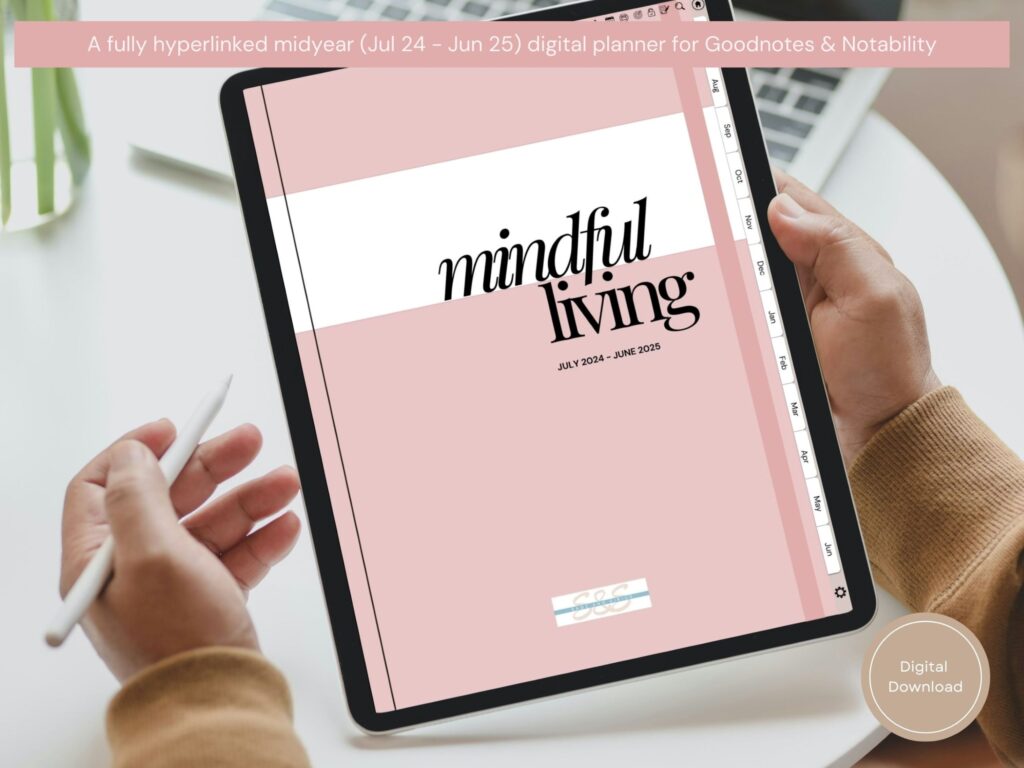
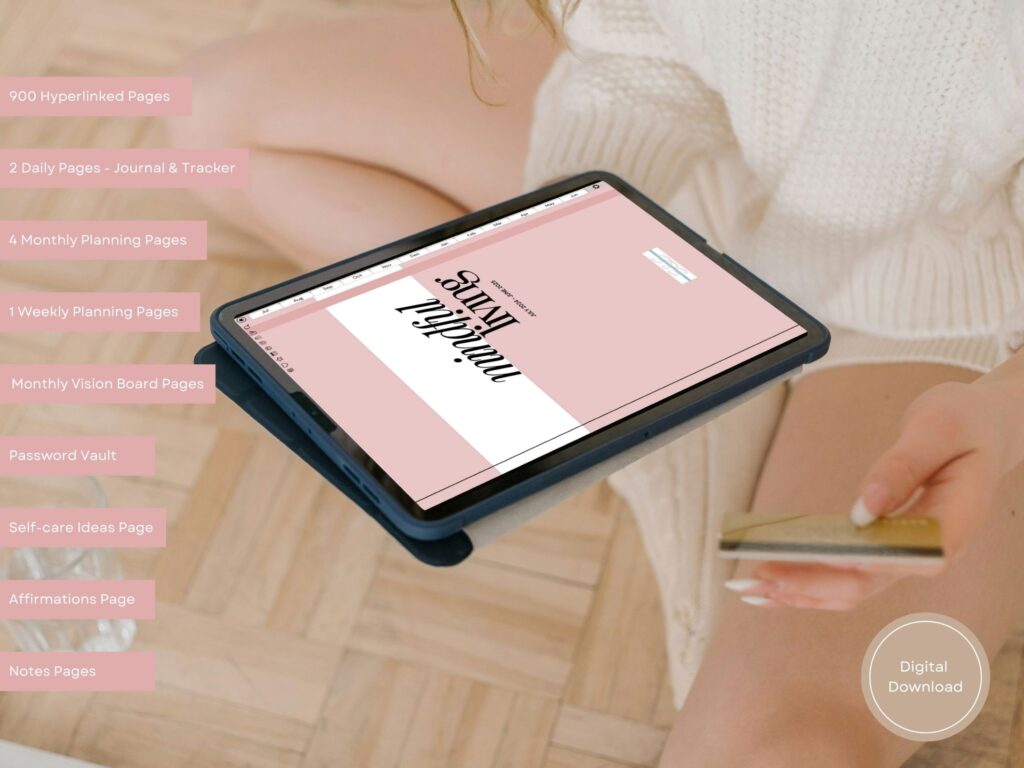
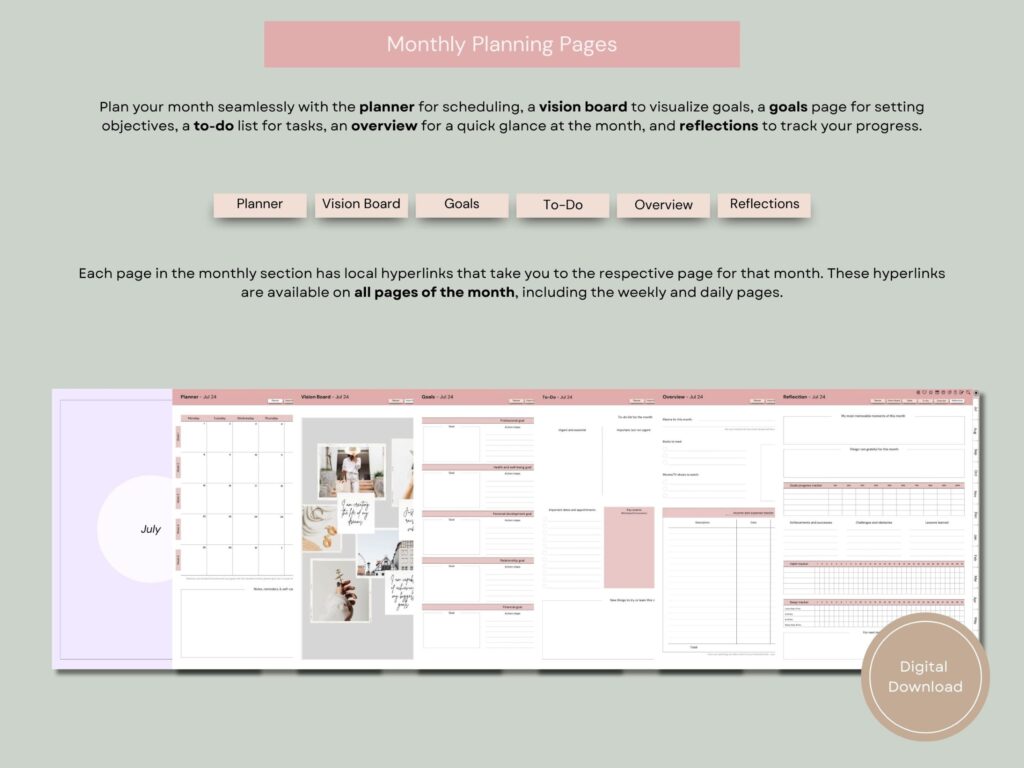
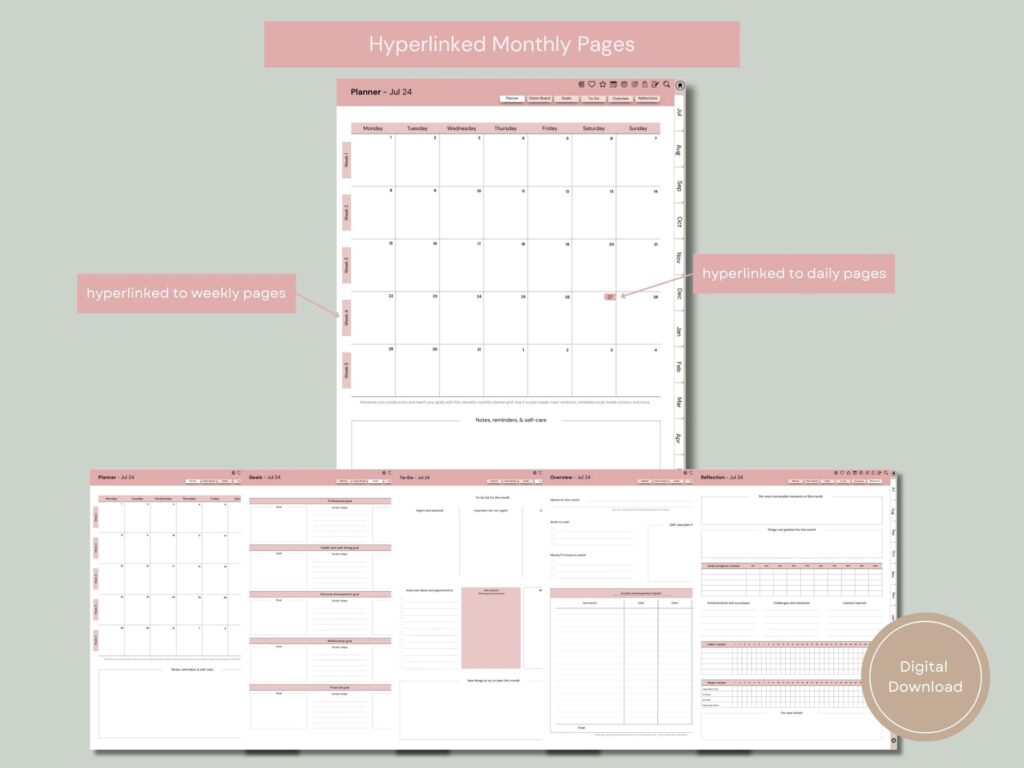
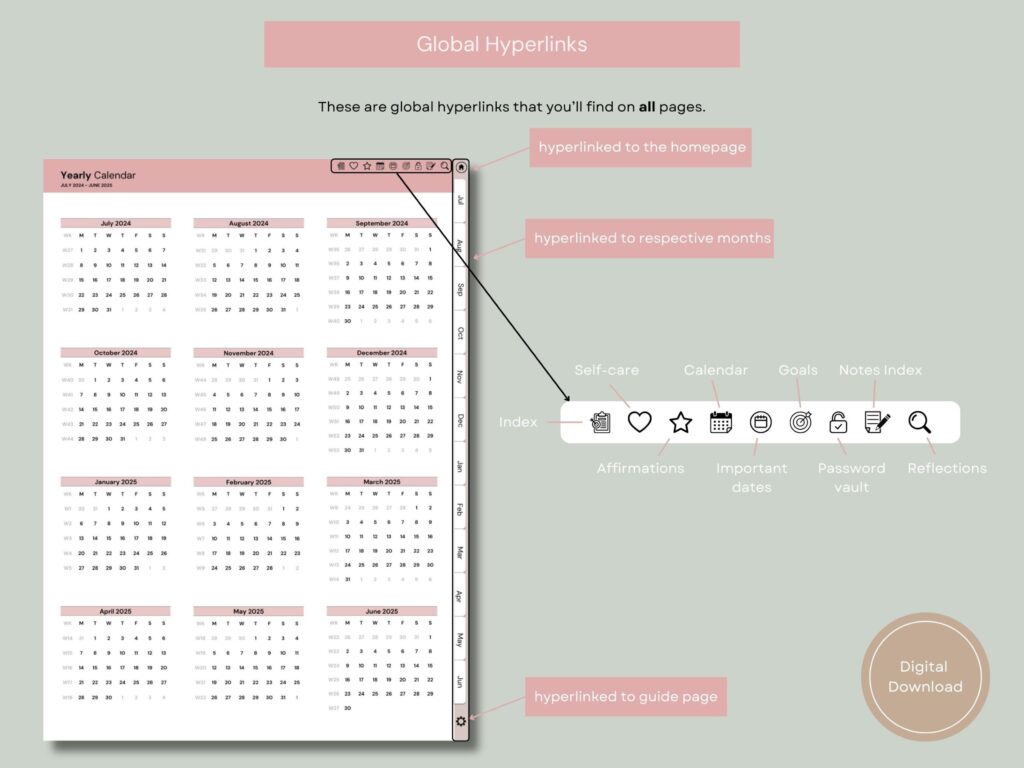
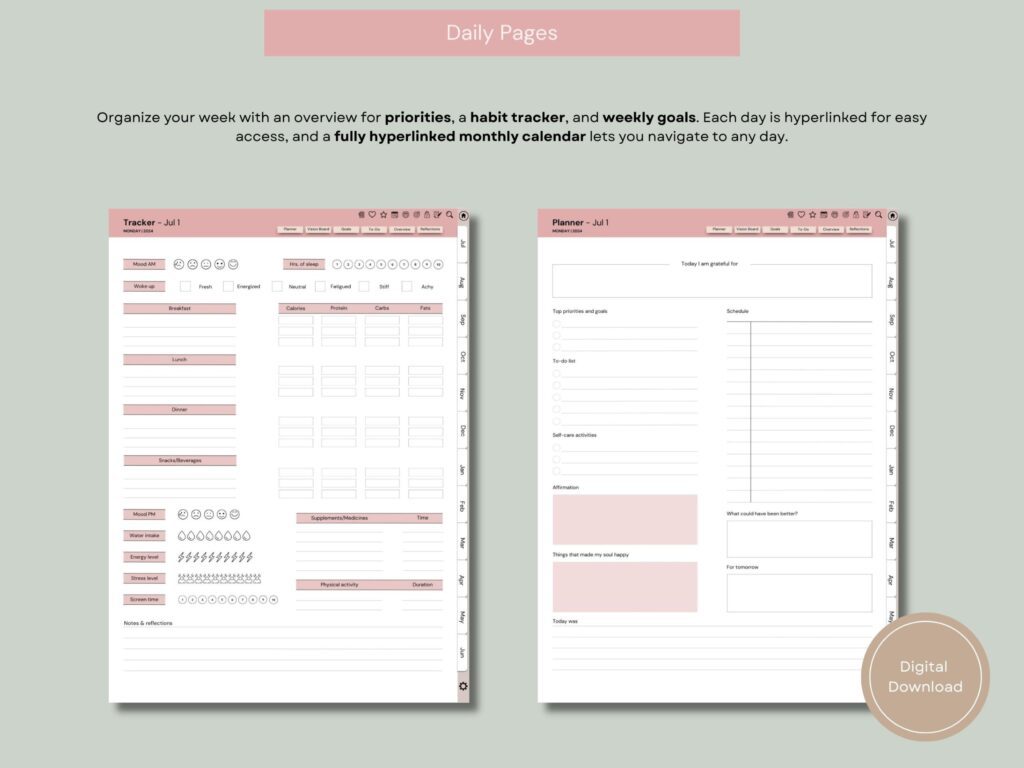
One of my favorite parts is how easy it is to use. All the pages are hyperlinked, so moving between sections is seamless. It’s helped me stay consistent with my journaling practice so far because everything I need is in one place.
If you’re curious about digital journaling, you might love it as much as I do. But even if that’s not your thing, start with a simple notebook and see how it goes from there. At the end of the day, the most important step is to just start.
Wrapping Up – How to Journal as a Hobby?
Journaling has been quite the journey for me. Not perfect by any means but deeply rewarding. I’m not here to act like an expert or tell you the “right” way to do it.
Honestly, I’m just a girl who gave it a try because my therapist suggested it, failed to stick with it at first, tried again, and eventually found something I now truly enjoy.
It’s still a work in progress, but that’s the beauty of it, journaling grows with you.
If you’re thinking about starting, my advice is simple: don’t overthink it. Don’t wait for the perfect notebook or the ideal time. Just grab whatever you have, even if it’s a half-used notebook lying around, and start.
At first, it might feel awkward or like one more thing on your to-do list. That’s okay. Stick with it, even if it’s just for a few minutes a day.
Before you know it, you’ll start to feel the benefits, and it will become something you look forward to.
For me, creating a little routine around it made all the difference. I make a cup of herbal tea and give myself that quiet moment in the morning to plan my day. I do it briefly in the evening as well to reflect on my day.
It’s not just a habit anymore, it’s a part of my day I genuinely enjoy.
Start small, stay consistent, and let journaling be a hobby that evolves into something much more meaningful. You yourself will use it as a tool to improve different aspects of your life.
So pick up that notebook or open that digital journal, and get started. You might just be surprised by the difference it makes. Please share your journey and experiences, I can’t wait to hear about them. Namaste!
Related Blogs on Journaling
- What Is Journaling and What Are Its Benefits?
- How to Journal for Personal Growth and Self-improvement
- How to Start a Health and Wellness Journal
- How Can Journaling Boost Your Productivity
- How to Journal for Overthinking
- What Is a Morning Journal and How to Journal in the Morning?
- The Pros and Cons of Journaling
- What Type of Self Care Is Journaling?
- How to Organize a Personal Journal
FAQs – Can Journaling Be a Hobby?
Can anyone start journaling as a hobby?
Of course! Journaling is for everyone. There are no special requirements or skills needed. As I mentioned earlier, you can just pick up any notebook you have lying around and start writing.
It’s simple, personal, and entirely yours to shape however you like.
What Kind of Skill Is Journaling?
Journaling isn’t really about “skills.” It’s more about creating a space where you can express yourself freely.
Is Journaling a Form of Creativity?
Definitely! Journaling is a wonderful way to get creative. Whether you’re writing down your thoughts, sketching ideas, or mapping out goals, it’s a chance to explore your imagination and express yourself in a way that feels authentic.
Is Journaling a Good Habit?
Journaling has been such a good habit for me. It helps me plan my days, process my emotions, and reflect on life.
Like I mentioned earlier, it’s also been a great way to unload stress, especially with fibromyalgia. It’s worth giving it a try!
What are the Benefits of Journaling?
There are so many benefits—reducing stress, organizing your thoughts, setting goals, and even improving mental clarity.
For me, it’s been a way to balance my personal and professional life, and I’ve shared a lot of this journey in the blog.
Is Journaling and Diary Writing the Same?
Not quite. Diary writing is more about jotting down what happened during your day, while journaling can go deeper. It might include things like gratitude exercises, goal-setting, or even brainstorming ideas, depending on your focus.
Related Blog: Journaling vs. Keeping a Diary: What’s the Difference?
How does journaling as a hobby improve mental health?
Journaling is like giving your mind a chance to breathe. Writing down your thoughts and worries can help you feel lighter and more in control. For me, it’s been a great way to stay calm and focused, especially when life feels overwhelming.
Related Blog: 5 Simple Steps to Start Journaling for Mental Health


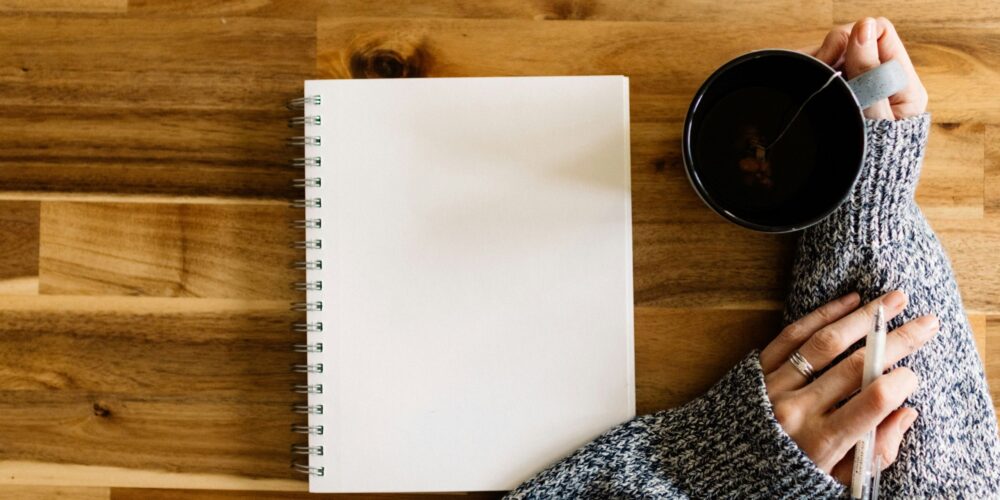




Leave a Reply